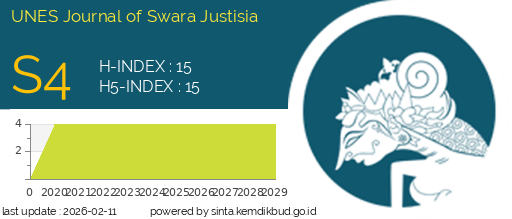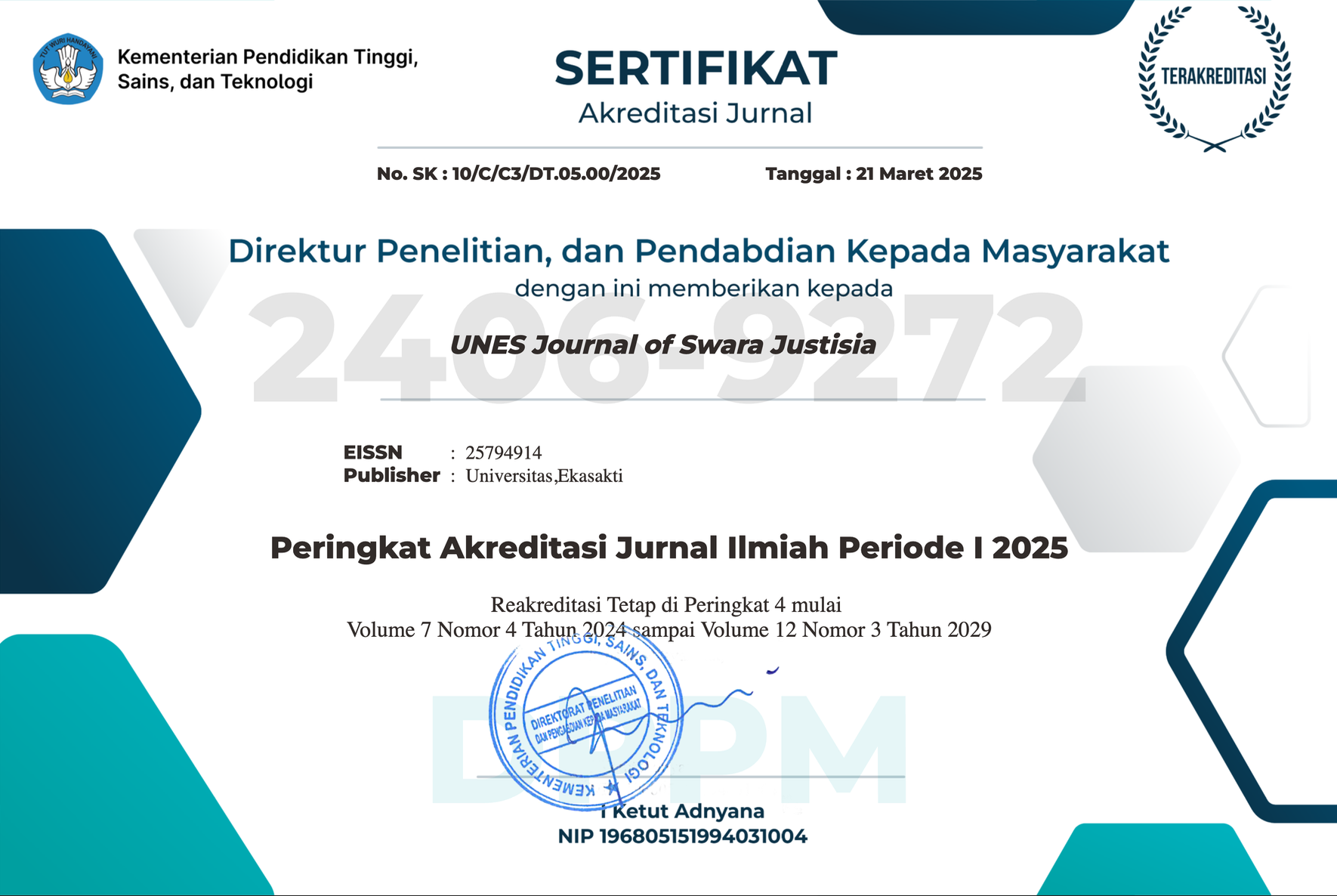LEGITIMASI PENJARA ADAT NAGARI TERHADAP TINDAK PIDANA ASUSILA (Studi Kasus Nagari Tigo Jangko, Kec. Lintau Buo, Kab Tanah Datar)
Downloads
Based on the results of the study concluded that First, the application of traditional nagari
prisons in the enforcement of customary criminal law in Nagari Tigo Jangko there are
several stages which consist of being caught being immoral, they are escorted to the
nagari guardian's office. The male perpetrator was put into Nagari Prison which was
located next to the Nagari guardian's office, while the female was put into the Nagari
guardian's office. In Nagari Prison the perpetrators are shown to the public
(approximately 3-5 hours). In the span of a few hours, Ninik Mamak the perpetrator,
religious leader, adat and nagari apparatus held a meeting in adat density to determine
the customary punishment that could be imposed on the perpetrator. Then the perpetrators
were taken by the police to the Lintau Buo Sub-district Police Station located in Pangian,
if there was a criminal element in it (National Criminal Law). Second, the legitimacy of the
Nagari Tigo Jangko customary prison against immoral crime is a strategic role in
regulating the implementation of the nagari government. The customary prison in Nagari
Tigo Jang¬ko has been regulated in the local nagari regulations and has the agreement of
the customary and youth stakeholders, in the event that the relevant violations will first be
convened at the Nagari Indigenous Peoples Office by nagari and pucuk leaders local
customs and if found a committed violation fined customarily and put in a customary
officer for one day or before the hearing in KAN is finished, if the perpetrator's action
there is an element of criminal offense, the perpetrator will be handed over to the Polsek,
but the offender is not fined by custom.
Penulis yang mempublikasikan manuskripnya di jurnal ini menyetujui ketentuan berikut:
- Hak cipta pada setiap artikel adalah milik penulis.
- Penulis mengakui bahwa UNES Journal of Swara Justisia (UJSJ) berhak menjadi yang pertama menerbitkan dengan lisensi Creative Commons Attribution 4.0 International (Attribution 4.0 International CC BY 4.0).
- Penulis dapat mengirimkan artikel secara terpisah, mengatur distribusi non-eksklusif manuskrip yang telah diterbitkan dalam jurnal ini ke versi lain (misalnya, dikirim ke repositori institusi penulis, publikasi ke dalam buku, dll.), dengan mengakui bahwa manuskrip telah diterbitkan pertama kali di UNES Journal of Swara Justisia (UJSJ).
















